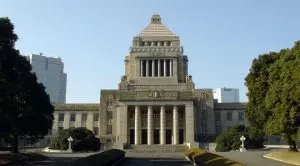 Japan was considered one of the largest untapped markets for legalized casinos in the world. For years, the political environment in the country was not appropriate for the introduction of bills that would regulate the industry. Soon after Shinzō Abe was elected Prime Minister of Japan in 2012, the topic has started to gain momentum.
Japan was considered one of the largest untapped markets for legalized casinos in the world. For years, the political environment in the country was not appropriate for the introduction of bills that would regulate the industry. Soon after Shinzō Abe was elected Prime Minister of Japan in 2012, the topic has started to gain momentum.
Each time casino legalization or expansion is considered, similar topics come up on the table for discussion. If there are several concerns related to the legalization of the casino industry, gambling addiction ranks on top. Lawmakers usually face the hard task to determine if the economic benefits of casinos outweigh social costs.
Needless to say, gambling has become the panacea for cash-strapped jurisdictions, which are seeking to climb out of a financial hole. Even though Japan is one of the world’s most advanced countries, its national debt was growing astronomically. In December 2016, Japan finally decided to take an important step in its development and regulate its gambling market.
Japan Ups the Ante in Fight with Gambling-Related Problems
 But that was only the first step in a long stairwell towards passage. Among all other things, the creation of a regulatory framework that would protect vulnerable players from developing gambling-related problems has turned into a major priority for the government. Driven by its ambition to establish a player-safe gambling environment, the government has started to work on a responsible gambling bill. The Japanese government is currently looking to pass a responsible gambling bill before the end of its session that expires on 20th June.
But that was only the first step in a long stairwell towards passage. Among all other things, the creation of a regulatory framework that would protect vulnerable players from developing gambling-related problems has turned into a major priority for the government. Driven by its ambition to establish a player-safe gambling environment, the government has started to work on a responsible gambling bill. The Japanese government is currently looking to pass a responsible gambling bill before the end of its session that expires on 20th June.
Among all other things, a weekly and monthly cap on the maximum number of casino visits allowed to players was proposed. The maximum number of entries is yet to be decided. Japanese residents will be required to present their “My Number” identification cards before entering a gambling facility located on the territory of the country. Foreigners, on the other hand, will need to present their passports or other identity documents to identify themselves.
Mere hours ago, Japan made the headlines once again after it was reported that the government considers introducing biometric checks upon entering a casino. To make it clearer, these biometric checks will include facial and vein recognition. In fact, biometric authentication is one of the safest ways to verify someone’s identity. Biometrics play an important role in the public safety applications of law enforcement technology.
The recent news came just a day after the local anti-casino movement Wakayama Network called for more transparency in the process of legalizing the so-called Integrated Resorts Casinos. Yesterday, Casino Guardian found out that the new organisation’s Secretary General and former governmental candidate asked the government to publicise the results of audit reports, shedding light on the effects of the establishment plan for the Integrated Casino Resort on the economic viability.
- Author


